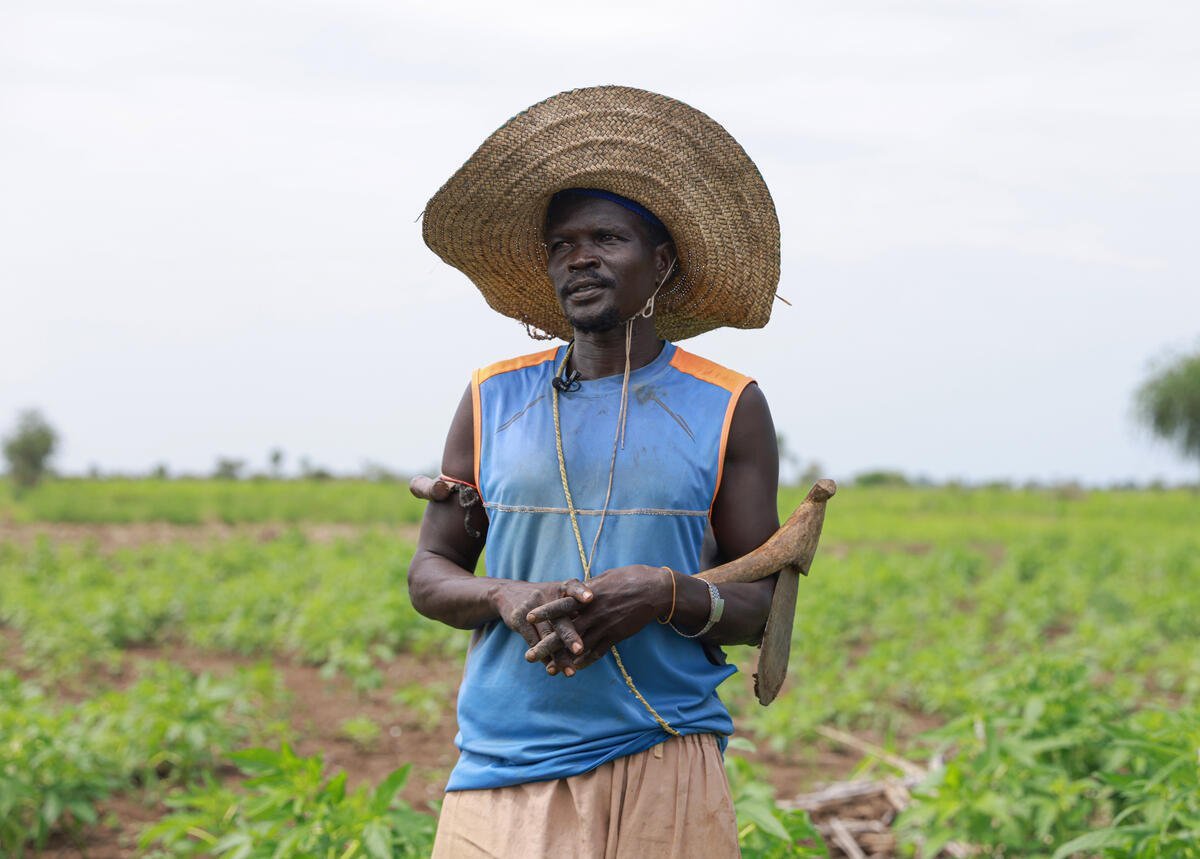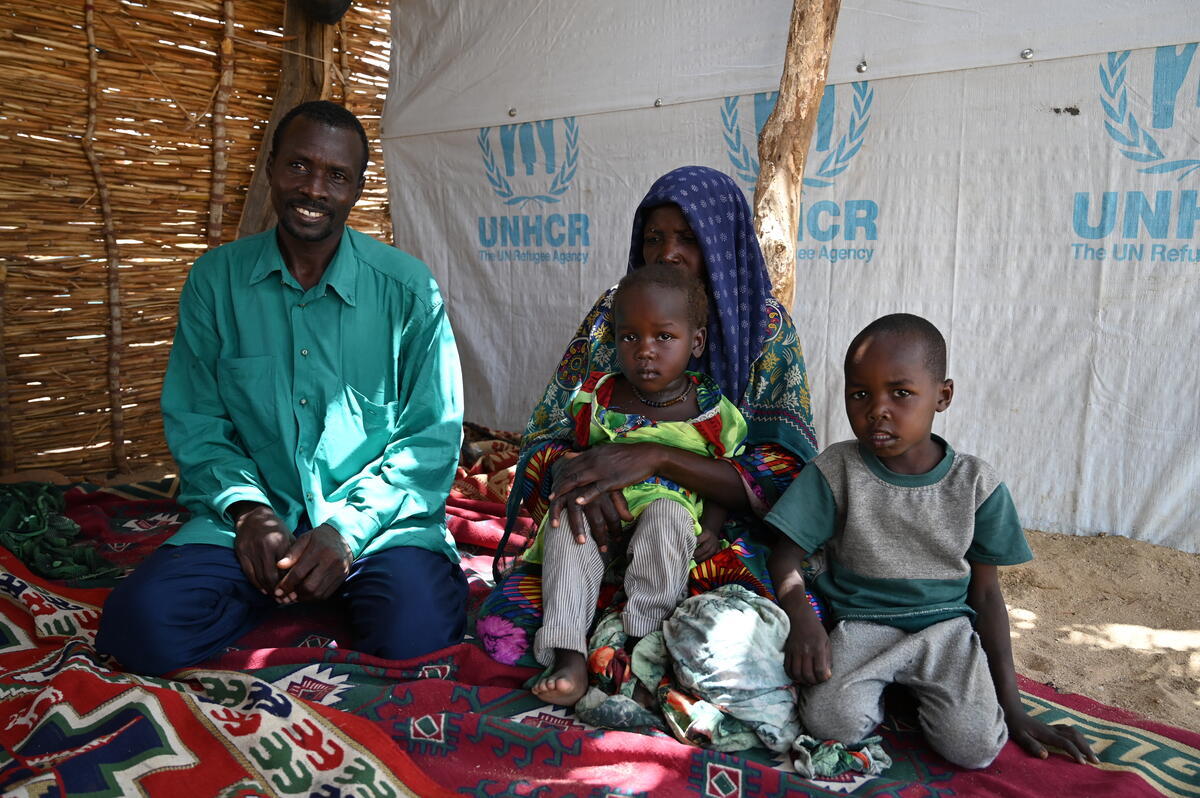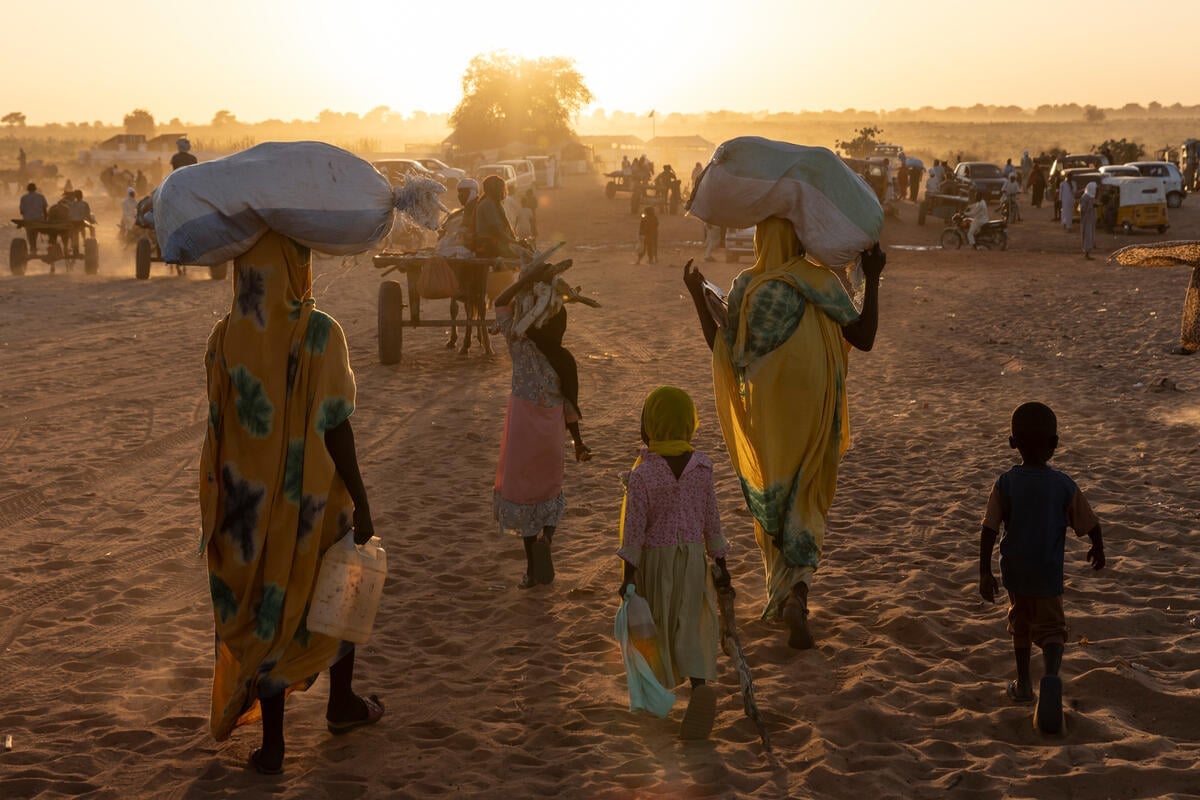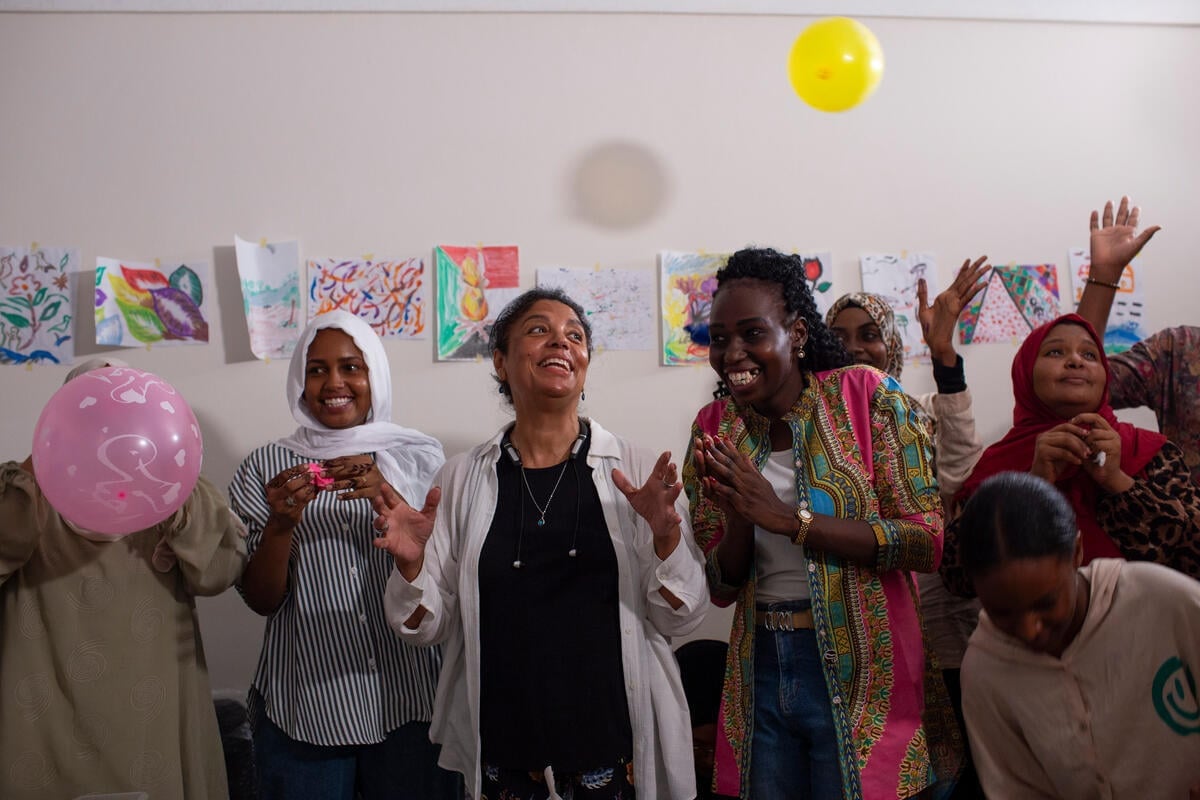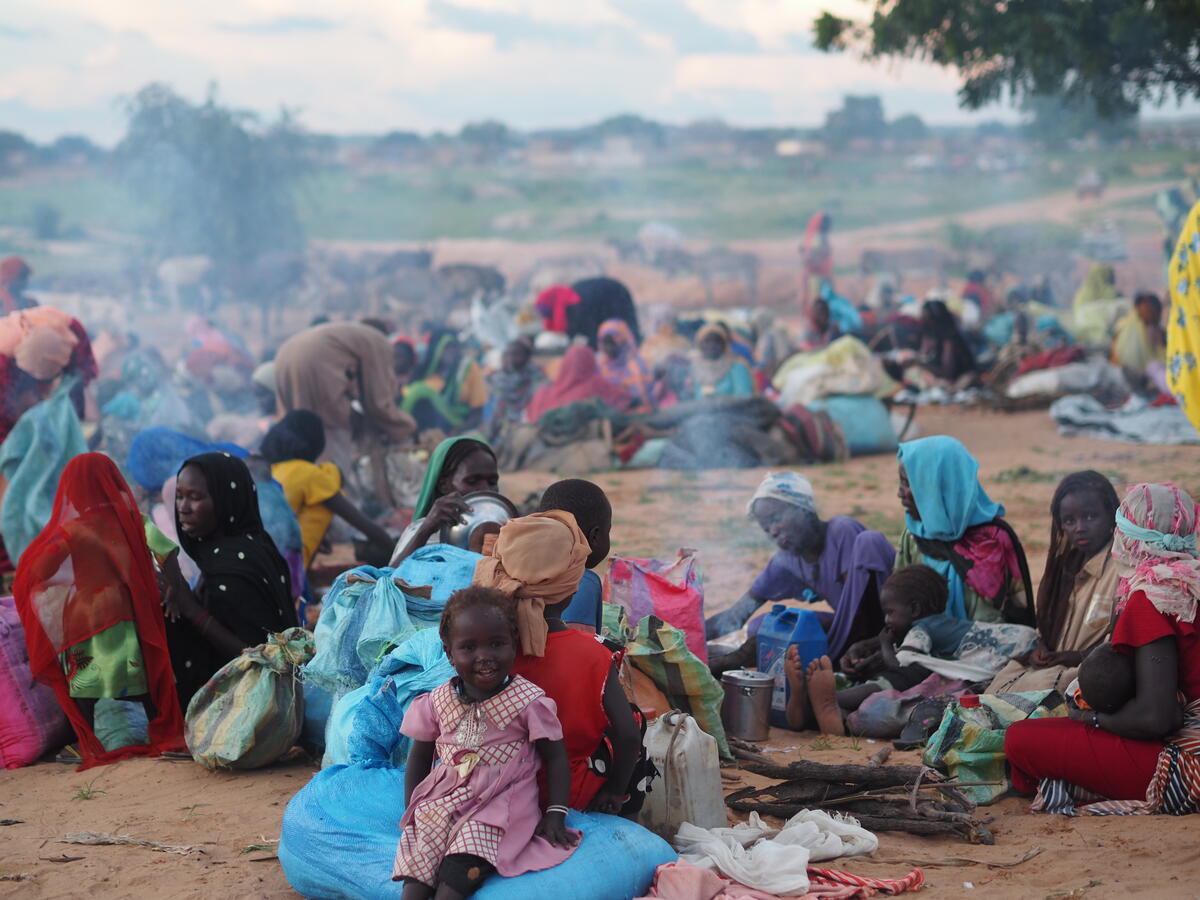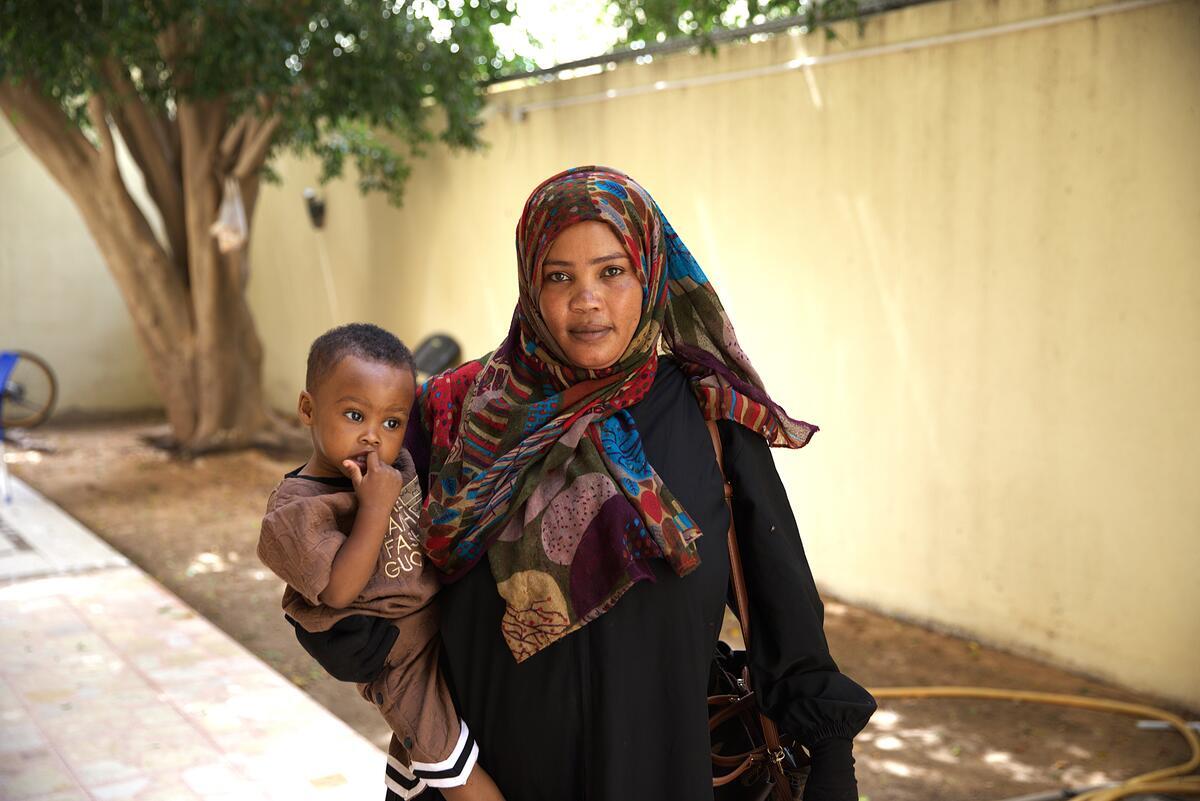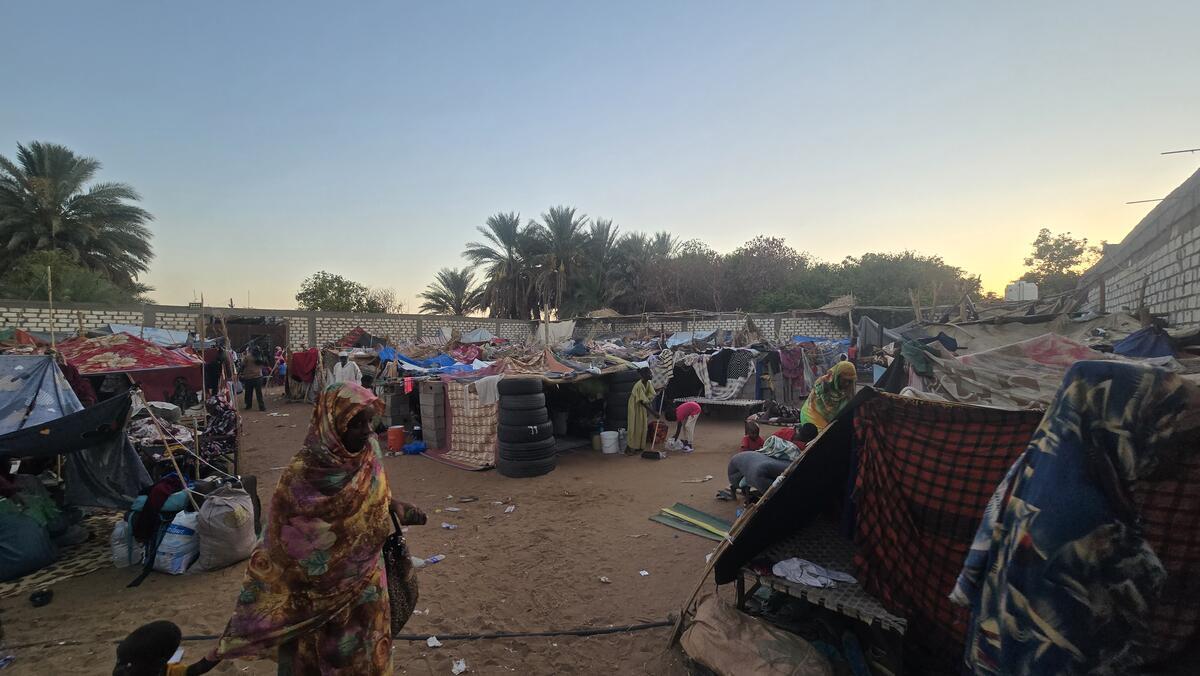Darfur: UNHCR authorised to start work in north, restart in south
Darfur: UNHCR authorised to start work in north, restart in south
UNHCR has received a response from the Sudanese authorities that we are welcome to resume our protection work in South Darfur and to start activities in North Darfur. Three of our four South Darfur staff were temporarily relocated to West Darfur on November 11 after they had been restricted to Nyala by Sudanese authorities and were prevented from carrying out their protection work on behalf of internally displaced people. We welcome this development and will be mobilising our staff to return to their base in Nyala in the coming days.
In West Darfur, some security restrictions were lifted two weeks ago and UNHCR teams have resumed regular field missions to villages and settlements of internally displaced people (IDPs), particularly near the Chad border. The villagers and IDPs have stressed to UNHCR the importance of regular visits by international agencies, which they say provide reassurance and have helped improve security.
A team was scheduled to go today to the village of Masteri, which remains tense since an October 10 attack on the town - attributed to rebel groups by the local authorities. Today's visit is the fifth by UNHCR in the past ten days. Civilians in Masteri report that since the Oct 10 attack, they regularly hear gunfire at night. They also told UNHCR that they do not feel safe going to their fields for fear of attacks by janjaweed militia. That fear arises from various incidents reported by the IDPs, including theft of cattle by janjaweed militia, the destruction of two wells and the damaging of a water pump, and the beating by janjaweed of a man and his son who had ventured out of town to collect wooden poles to strengthen their hut. We plan to send another mission to Masteri later this week to continue to ensure a regular presence in the town and monitor the security situation. UNHCR believes that regular visits will continue to build confidence among the population, which might prevent further departures to Chad.
Elsewhere in West Darfur, we've heard similar security concerns among civilians as well as their desire for an international presence. In Bangadid village, an hour north-west of El Geneina, sheiks reported incidents last week in nearby villages that included livestock theft by nomadic tribesmen and an attack on a woman by armed men in what appears to have been a robbery. Villagers said that UNHCR is the only international agency to have visited them and stressed that they felt more reassured in terms of safety because of an international presence.
In Garsila, our partner, Intersos, has just started hygiene promotion activities including camp cleanups for the 24,000 internally displaced people in Dala camp just outside the town. Intersos has also recently started children's clubs offering recreation such as volleyball and soccer as well as school activities for some 1,400 children. IDPs interviewed by UNHCR in the camp said they feel much safer since Intersos developed these activities and since their international and local staff regularly come to the camp. They say they are once again venturing as much as two to three kilometres away from the camp to collect wood, something that was impossible until a month ago because of possible attacks by janjaweed militia. One of the camp's main leaders confirmed that there have been regular attacks by janjaweed militia in the camp in recent months. He described men wearing military uniforms on horses and camels, who raided houses and stole belongings.
Another problem frequently reported is the destruction of crops by grazing cattle belonging to Arab nomadic tribes. It is currently harvest season in Darfur, but villagers in several locations were unable to bring in their crops before they were destroyed. In previous years, there has been a customary understanding for coexistence for grazing cattle and agricultural crops, but these agreements do not seem to be respected anymore. In Mangarsa village (30 km south of Habila), which was visited by a UNHCR team last week, the sheiks reported that at the end of October, 10 fields were destroyed by the animals of nomadic tribes. Sheiks in Bangadid also reported crop destruction in the area, saying that in the past two years, some of the Arab tribesmen have started to appear in military uniforms and carrying weapons, arriving with their cattle in groups of four or five and threatening villagers who might protest the destruction of the crops. Since their crops were destroyed, the primary means of subsistence in the village is collecting firewood to make charcoal for sale in El Geneina. The problem of crop destruction was also reported to UNHCR in Masteri.


